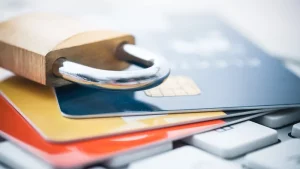The prevalence of payment fraud is a growing concern for both consumers and businesses. In a 2021 report by fraud prevention firm SEON, it was recorded that there were 1,862 data breaches affecting 293 million individuals. Cybercriminals are using sophisticated tactics to exploit vulnerabilities in online systems and gain unauthorized access to sensitive data. 65% of respondents in a recent survey said their organizations experienced attempted or successful fraud activity in 2022. For small business owners, ensuring the safety of online transactions is crucial as falling victim to fraud can lead to financial losses and a damaged reputation. It’s projected that payment fraud will cost $40.62 billion by 2027. Prioritizing security measures and staying vigilant against emerging threats is necessary to protect both the business and its customers.
Key Takeaways:
- Payment fraud is a growing concern, with 1,862 data breaches recorded in 2021, affecting 293 million individuals.
- Small business owners should prioritize security measures to prevent financial losses and protect their reputation.
- Implementing strong encryption, educating employees about phishing scams, and using two-factor authentication are important security measures.
- Transaction notifications and choosing a secure payment provider enhance transaction security.
- Consumers should install security software, use strong passwords, and avoid public Wi-Fi for secure online transactions.
Importance of Security Measures in Online Transactions
Banks play a crucial role in ensuring the security of online transactions, employing strong encryption methods to protect sensitive data throughout the process. By following strict security rules and utilizing advanced encryption techniques, banks effectively safeguard customer information from cybercriminals.
However, it is essential for small business owners to remain vigilant against prevalent forms of online fraud, such as phishing scams. Phishing scams involve fraudulent emails, texts, or phone calls masquerading as legitimate entities with the intention of deceiving individuals into sharing sensitive information. Educating themselves and their employees about the telltale signs of phishing scams and exercising caution when divulging sensitive data is paramount for small business owners.
Two-factor authentication (2FA) is a widely adopted security measure for online payment transactions. It serves as an additional layer of protection by requiring users to provide two verification forms before granting access to their accounts. Implementing 2FA significantly reduces the risk of unauthorized access and enhances overall protection against cyber threats.
Transaction notifications are another powerful tool in safeguarding against financial fraud. Instant alerts can help detect and prevent unauthorized or fraudulent transactions, minimizing potential losses and fostering trust between businesses and their customers.
Online merchants should prioritize selecting a secure payment provider to enhance transaction security. Trusted providers offer robust fraud detection mechanisms, comply with industry regulations, and maintain high-security standards. Partnering with a reliable payment provider allows small businesses to optimize transaction security and provide customers with a safe and secure payment experience.
Key Benefits of Secure Online Transactions:
- Protection against data breaches and unauthorized access to sensitive information
- Reduced risk of falling victim to online fraud, such as phishing scams
- Enhanced customer trust and confidence in conducting secure transactions
- Minimized financial losses through early detection and prevention of fraudulent transactions
- Compliance with industry regulations and standards for secure digital transactions
| Security Measures | Benefits |
|---|---|
| Strong encryption methods | Protection of sensitive customer data |
| Phishing awareness and education | Reduced risk of falling victim to scams |
| Two-factor authentication (2FA) | Enhanced account security and protection against cyber threats |
| Transaction notifications | Early detection and prevention of unauthorized transactions |
| Choosing a secure payment provider | High-level fraud detection and compliance with security standards |
Implementing robust security measures in online transactions is crucial for both businesses and customers. By prioritizing online payment security, businesses can protect their reputation, minimize financial losses, and build trust with their customers. Customers, on the other hand, can conduct transactions with confidence, knowing that their sensitive information is safeguarded.
Tips for Secure Online Transactions
Ensuring secure online transactions is crucial for consumers to protect themselves from potential risks and vulnerabilities. By following a few simple tips, individuals can have peace of mind while engaging in secure online shopping and protected online transactions.
First and foremost, it is important to prioritize the installation of the latest security software, including trusted antivirus programs. These software solutions provide essential protection against malware, spam, and spyware, safeguarding personal information and financial data.
Additionally, creating strong and unique passwords for each online account adds an extra layer of security. Avoid using easily guessable passwords or reusing them across multiple platforms. By utilizing complex combinations of letters, numbers, and symbols, individuals can enhance the security of their online transactions.
Furthermore, exercise caution when connecting to the internet, especially when conducting online transactions. Avoid using public Wi-Fi networks, as they can be vulnerable to hackers and unauthorized access. Instead, opt for secure, password-protected networks or consider using a virtual private network (VPN) for added protection.
Verifying the authenticity of websites before making online transactions is critical. Check for the “https” at the beginning of the web address, indicating that the website has a secure online payment gateway. This ensures that sensitive information is encrypted and protected during the transaction process.
Remaining vigilant against phishing attempts is equally important. Be cautious of emails requesting personal or financial information, especially from unknown senders. Legitimate entities will never ask for sensitive information via email. When in doubt, contact the official company through their verified channels to confirm the authenticity of the communication.
It is also advisable to log out of bank and merchant sites after completing transactions to prevent unauthorized access. Avoid saving financial passwords on computers or browser auto-fill features, as this can increase the risk of security breaches. Keeping records of online purchases and regularly reviewing credit card and bank statements can help detect any discrepancies, ensuring the security of online transactions.
Lastly, staying informed about the latest security measures and utilizing advanced technology, such as reliable antivirus and firewall programs, can significantly reduce the risk of online fraud. Regularly updating software and implementing security patches provide additional layers of protection against emerging threats.
By implementing these tips and being proactive about online transaction security, consumers can confidently engage in secure online shopping and protected online transactions. Safeguarding personal information, financial data, and ensuring secure online payment gateways is paramount in today’s digital landscape.



